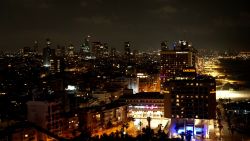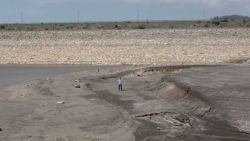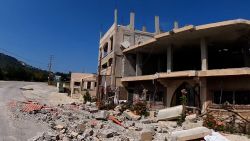When Prime Minister Abiy Ahmed of Ethiopia received the Nobel Peace Prize last year, he was lauded as a regional peacemaker. Now, he is being asked to pull his own country back from the brink of civil war.
Abiy has ordered troops into the restive Tigray region in the country’s north, bordering Eritrea. The prime minister says he made the military move in response to an alleged attack by the Tigray People’s Liberation Front (TPLF) on a federal military base in the regional capital of Mekelle.
The federal government has since announced a six-month state of emergency, which gives them broad security powers. Internet and communications lines have been blacked out in the region according to local reporters.
On Thursday, Ethiopia’s military said it was at “war” with the ruling party of the country’s northern Tigray region.
“Our country has entered into a war it didn’t anticipate. This war is shameful, it is senseless,” Berhanu Jula, the deputy army chief, told reporters, the AFP news agency reported.
The developments increase the likelihood of Ethiopia’s already fragile federal system fracturing further and could pull in Eritrea’s military.
Why now?
The current round of tensions in Tigray started in August when Abiy’s government delayed scheduled elections because they said the risk of Covid-19 was too high.
Officials in Tigray cried foul and held their own election in September anyway, with more than two million people turning up to vote.
In retaliation, the federal government withheld funding from the TPLF leadership in Mekelle, promising to send it directly to local leaders instead. It set off a tit-for-tat series of recriminations and rhetoric between the regional and the federal government that has been steadily building.
Foreign observers and diplomats are increasingly worried that the situation could significantly escalate within Tigray and beyond.
But didn’t Abiy Ahmed receive a Nobel Peace Prize?
Yes, he did. The Nobel committee awarded Abiy the prestigious prize for his role in ending the conflict with Eritrea and pushing significant reforms in Ethiopia.
Ethiopia’s direct conflict with Eritrea lasted from 1998 to 2000 with significant loses on both sides. But the two-year war led to a lengthy and dangerous stalemate and a total freeze in cooperation.
Once in power, Abiy moved quickly to normalize relations with Eritrean President Isaias Afwerki, in part, by accepting the ruling of an international commission on boundaries between the two states. The détente angered some in Tigray, who had borne the brunt of the conflict.
But Abiy also made significant moves towards reform domestically. He lifted a state of emergency and released thousands of political prisoners (though he has since jailed some opponents). He has also moved to open up the telecommunications industry and expand private investment.
But his promise to hold free and fair elections has been unfulfilled and political resentment as well as violence has been building within the country.
Is the tension just confined to Tigray?
The deterioration in Tigray over the past few months is part of a larger tension bedeviling Ethiopia for generations.
The country is made up of 10 regions – and two cities – that have a substantial amount of autonomy, including regional police and militia. Because of the lengthy conflict with Eritrea, there are also a large number of federal troops in Tigray. Regional governments are largely divided along entrenched ethnic lines.
Abiy came to power in 2018 promising to break those divisions. He formed a national coalition called the Prosperity Party, but the TPLF refused to join, in part because the new coalition broke the dominance of TPLF in government – a dominance that had lasted since the early 1990s.
Abiy’s political appeal, in part, was built on his campaign of “Medemer” or “synergy” – a sense of national togetherness transcending regional and ethnic identities. Officials in Tigray and other regions have complained that Abiy was only trying to solidify his power from Addis Ababa, Ethiopia’s capital.
And while there are still significant numbers of people who believe in an Ethiopian identity, Abiy’s rule, while lauded internationally, has seen ethnic and political tensions expand significantly in several parts of the country, often with deadly consequences.
In one prominent case, the popular Oromo singer Hachalu Hundessa was killed in Addis Ababa in June, leading to widespread protests and multiple deaths. Abiy is from the Oromo ethnic group, but the powerful constituency has mixed feelings about his rule.
What is at stake?
For Africa’s second-most populous country and Ethiopia’s more than 100 million citizens, particularly for those living in Tigray, this week’s events may deepen the sense of distrust for the federal government and the prime minister. A stable Ethiopia is crucial to the restive Horn of Africa region.
Ethiopia has received hundreds of millions of dollars in US aid and military assistance and has been a key ally of the US in combating extremist groups in neighboring Somalia.
For now, the US, one of Abiy’s key foreign allies, appears to back the prime minister’s stance on the alleged TPLF attacks.
But Abiy’s real problem since coming to power hasn’t been losing friends abroad – it’s been making enemies at home.

















